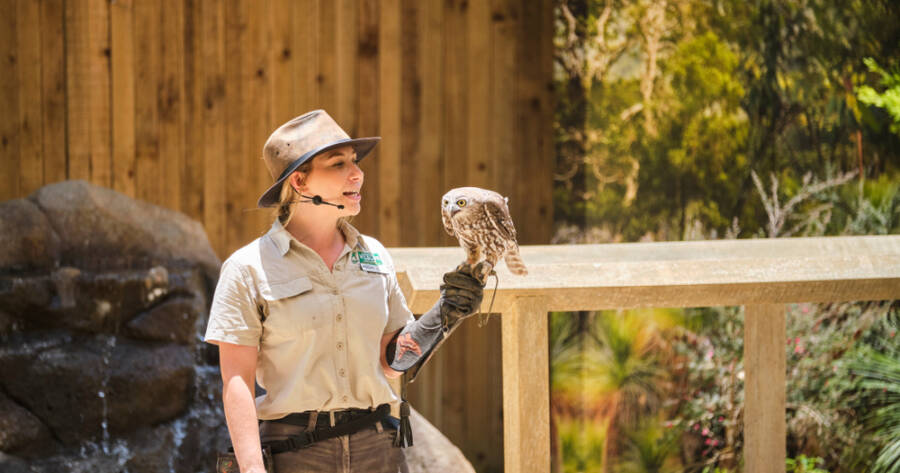Not everyone who loves animals wants to spend years in vet school or perform surgeries. Fortunately, there are many fulfilling careers that allow animal lovers to make a difference in animals’ lives—without becoming a veterinarian. Whether you’re passionate about wildlife, domestic pets, marine creatures, or farm animals, there’s a rewarding path for you. The top animal-related careers that combine passion and purpose offer a chance to work closely with animals in meaningful ways.
Wildlife Rehabilitator
Wildlife rehabilitators care for injured, sick, or orphaned wild animals with the goal of releasing them back into their natural habitat. This job requires a deep understanding of animal biology and behavior, as well as a calm, patient demeanor. Rehabilitators work with a variety of species—from birds of prey to raccoons and deer. While the pay can be modest and the work demanding, the reward lies in seeing an animal return to the wild. Licensing or certification is often required depending on the region.
Zookeeper or Animal Care Specialist
Zookeepers care for animals in zoos, aquariums, and wildlife parks. Their duties include feeding, cleaning enclosures, observing animal health and behavior, and educating the public. This role is ideal for someone who loves routine, thrives in structured environments, and has a soft spot for exotic or endangered species. Formal education in zoology, biology, or animal science is typically needed, along with practical experience through internships or volunteer work.
Animal Trainer or Behaviorist
If you’re fascinated by animal psychology, becoming a trainer or behaviorist might be your calling. Animal trainers work with pets, service animals, or performance animals to teach them commands, tricks, or specialized behaviors. Animal behaviorists take a more scientific approach, often helping solve behavioral problems in domestic or captive animals. This career can lead to work in dog training, equine behavior, marine mammal performance, or even animal therapy. Certification through organizations like the IAABC or CCPDT enhances credibility and career prospects.
Pet Groomer
Grooming is more than just shampooing dogs. Pet groomers maintain the hygiene and appearance of pets, ensuring they’re healthy and comfortable. This hands-on career is perfect for people who enjoy one-on-one time with animals and have an eye for detail. Formal training programs can prepare aspiring groomers, and many eventually open their own businesses or work independently. It’s a great career for creative types who love pets and want a flexible work schedule.
Animal-Assisted Therapist
Animal-assisted therapists use trained animals to help clients cope with emotional or physical challenges. Whether it’s a therapy dog helping children with autism, or horses assisting in trauma recovery, this career blends psychology, social work, and animal care. While the animal is a partner in therapy, the human professional must be certified in counseling, therapy, or social work, often with additional certification in animal-assisted interventions. It’s a powerful way to help both people and animals thrive.
Conservation Biologist
For those passionate about environmental sustainability and wildlife protection, conservation biology is a meaningful path. Conservation biologists study ecosystems, work to prevent species extinction, and often travel to remote areas. They may work for government agencies, nonprofits, or international wildlife organizations. This career typically requires at least a bachelor’s degree in biology, ecology, or environmental science—many professionals also pursue advanced degrees. Fieldwork can be rugged, but the impact is immense.
Animal Control Officer
Animal control officers protect both animals and people by enforcing laws related to animal safety, cruelty, and control. They respond to calls about stray or dangerous animals, investigate abuse cases, and may even help in rescue efforts. While this career can involve emotionally challenging situations, it’s a critical role in ensuring animals are treated humanely. Most positions require training in animal handling, criminal justice, or law enforcement.
Humane Educator or Shelter Worker
Animal shelters and humane societies offer several roles that directly support animals in need. From kennel attendants and adoption coordinators to educators who teach about animal welfare, these positions provide meaningful, hands-on experience. Humane educators visit schools or community groups to raise awareness about responsible pet ownership, animal rights, and empathy toward all living beings. While some roles are volunteer-based, many organizations offer full-time positions with growth potential.
Marine Mammal Specialist
For those drawn to the ocean, becoming a marine mammal specialist opens doors to working with dolphins, seals, whales, and more. These professionals may work in aquariums, rehabilitation centers, or research facilities. Responsibilities include training, caring for, and studying marine mammals to support conservation efforts. A strong background in marine biology or zoology is typically required, as well as physical stamina and comfort working in aquatic environments.
Start a Rewarding Career
Loving animals doesn’t mean you have to become a veterinarian. With so many diverse careers—ranging from wildlife rehabilitation to pet grooming—animal lovers can find their niche in roles that match their skills, interests, and values. Whether you’re drawn to science, education, or direct care, these paths offer fulfilling ways to make a lasting difference in animals’ lives.

